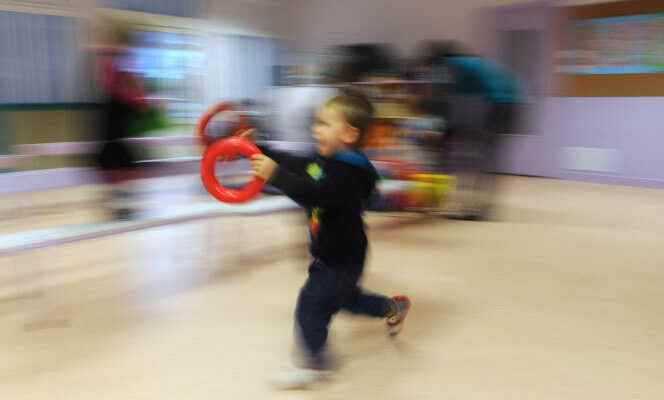Ten thousand steps and more. Attention danger. A sedentary lifestyle has harmful effects, as we know, and this, from an early age. Conversely, a recent American study published in The Journal of Pediatrics showed that 24-month-olds who engage in daily physical activity and spend less than sixty minutes staring at screens each day perform better in executive functions (including emotion management, “working” memory, and impulse control) than those who do not comply with the recommendations.
For memory, the recommendations of the American Academy of Pediatrics of 2018 and the WHO mention that babies “must be physically active several times a day, primarily through interactive floor play”. For children from 1 to 5 years old, this time of physical activity must amount to at least three hours a day, with at least sixty minutes of moderate or intense activity for children over 3 years old.
In France, the National Health Nutrition Program recommends to leave the baby on the stomach for thirty minutes daily for the first year, then to plan two to three hours of activity per day from the second year, limiting the sitting position as much as possible. “Often, the baby’s problem is that he is in the bouncer. However, he should not remain seated for more than an hour outside of the sleep phases., explains pediatrician François-Marie Caron, former president of the French Association of Ambulatory Pediatrics (AFPA). Tips that are not widely known.
In order to clarify these recommendations, the government is carrying out work which will also aim to offer tools for children under 5 years old. Otherwise, “the French Athletics Federation (FFA) offers activities from the age of 4, baby-athletes, to develop the motor base, with concomitant activities for parents”explains Thibault Deschamps, national sports health referent for the FFA, convinced that “habits of physical inactivity are anchored very very early”. Advice is also given through the site. Program-malin.comdeveloped by the AFPA and the French Society of Pediatrics.
Exposure to screens, a brake on development
Although there is little literature on toddlers, “we are starting to have studies on 0-4 year olds and we see that the effects of physical activity on health are a winning formula, also on school results”observes François-Marie Caron. As shown by a review of the literature which identifies 96 studies, published in BMC Public Health in 2017, “physical activity interventions have been consistently, in over 60% of studies, associated with improved motor and cognitive development”. “Regular participation in physical activity from birth helps prevent long- and short-term health complications, such as overweight, obesity, cardiovascular disease and musculoskeletal problems”explained a team from the Early Start research program developed by the Australian University of Wollongong, in a 2020 article.
You have 24.8% of this article left to read. The following is for subscribers only.
